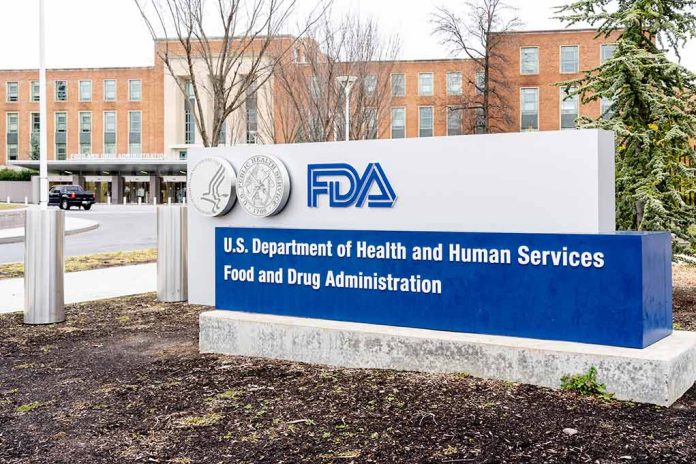
The resignation of Jim Jones from the FDA food division has unveiled deeper turmoil within the Department of Health and Human Services, spotlighting potential conflicts between political motivations and food safety advancements.
Key Takeaways
- Jim Jones resigned as head of the FDA’s food division, citing mass firings that he believes dismantled the group.
- The FDA’s food division is crucial in ensuring the safety of the U.S. food supply.
- The Trump administration’s firings are part of an effort to streamline government operations.
- Robert F. Kennedy Jr. has yet to announce a replacement for Jones.
- Jones had a significant impact, including banning Red No. 3 dye and investigating contaminated applesauce.
Resignation and Its Impact
Jim Jones’ resignation as head of the FDA’s food division has raised significant concerns within the Department of Health and Human Services. Having led the division since 2023, Jones expressed frustration over the 89 indiscriminate firings of staff members in critical areas such as nutrition and food safety. His departure adds to the ongoing debate about whether these changes seek to genuinely improve efficiency or if political motivations are at play. With no replacement named yet, the future of the FDA’s initiatives remains uncertain.
Jones’ resignation follows the Trump administration’s broader strategy to reduce federal employees across various agencies. This move, defended as a measure to streamline government operations, has faced criticism from different quarters. Health and Human Services Secretary Robert F. Kennedy Jr. has also criticized current FDA practices, committing to ending what he terms the “FDA’s war on public health.” Amidst these changes, Jones highlighted the impact of budget constraints and vital staff losses on food chemical safety reviews and major food safety initiatives.
As of today, February 18, 2025, Jim Jones, the head of the FDA's Food Division (officially titled the Deputy Commissioner for Human Foods), has resigned due to significant staff cuts within the agency. His resignation was reported on Monday, February 17, 2025, and stems from what…
— Clarence Terrell (@clarenceTerre) February 18, 2025
RFK Jr.’s Influence and Future Directions
Robert F. Kennedy Jr.’s role as HHS Secretary introduces another layer of intrigue to the turbulence affecting the FDA and its directives. Known for his critical views regarding conventional medicine and stringent food safety regulations, Kennedy’s tenure signals a potential shift in how FDA operations will be conducted. His “Make America Healthy Again” agenda plans to review children’s exposure to food ingredients and chemicals, challenging traditional regulations and potentially sparking further reform within the federal framework.
“This includes its aggressive suppression of psychedelics, peptides, stem cells, raw milk, hyperbaric therapies, chelating compounds, ivermectin, hydroxychloroquine, vitamins, clean foods, sunshine, exercise, nutraceuticals and anything else that advances human health and can’t be patented by Pharma,” said Kennedy in an X post. “If you work for the FDA and are part of this corrupt system, I have two messages for you: 1. Preserve your records, and 2. Pack your bags.”
The firings have undeniably created a disjointed environment at the FDA, a sentiment echoed by health organizations. Brian Ronholm of Consumer Reports labeled them “disruptive.” Scott Faber from the Environmental Working Group stated that Jones’ expertise in chemical safety is irreplaceable, potentially stalling efforts to enhance food safety. The upheaval raises questions over how Kennedy’s policies will realign with or deviate from those of his predecessors, impacting future FDA and HHS directives.
Controversial Firings: Political or Necessary?
The Trump administration has defended its actions, asserting that the firings were essential for hiring “the best and most qualified” personnel suited for its America First agenda. White House Press Secretary Karoline Leavitt emphasized this position, indicating a commitment to ensuring that only those who fully support the administration’s directives remain in government roles. However, the way forward remains uncertain, as these decisions could significantly realign critical public health safety roles and priorities in the months ahead.
The complexity of these dynamics, combined with Kennedy’s influence, necessitates close scrutiny of future decisions impacting the FDA. With critical voices on both sides, the overall direction remains a contentious topic for debate. Stakeholders are hopeful that these changes eventually lead to a balanced approach to food safety, maintaining public trust and prioritizing the health of all Americans.





